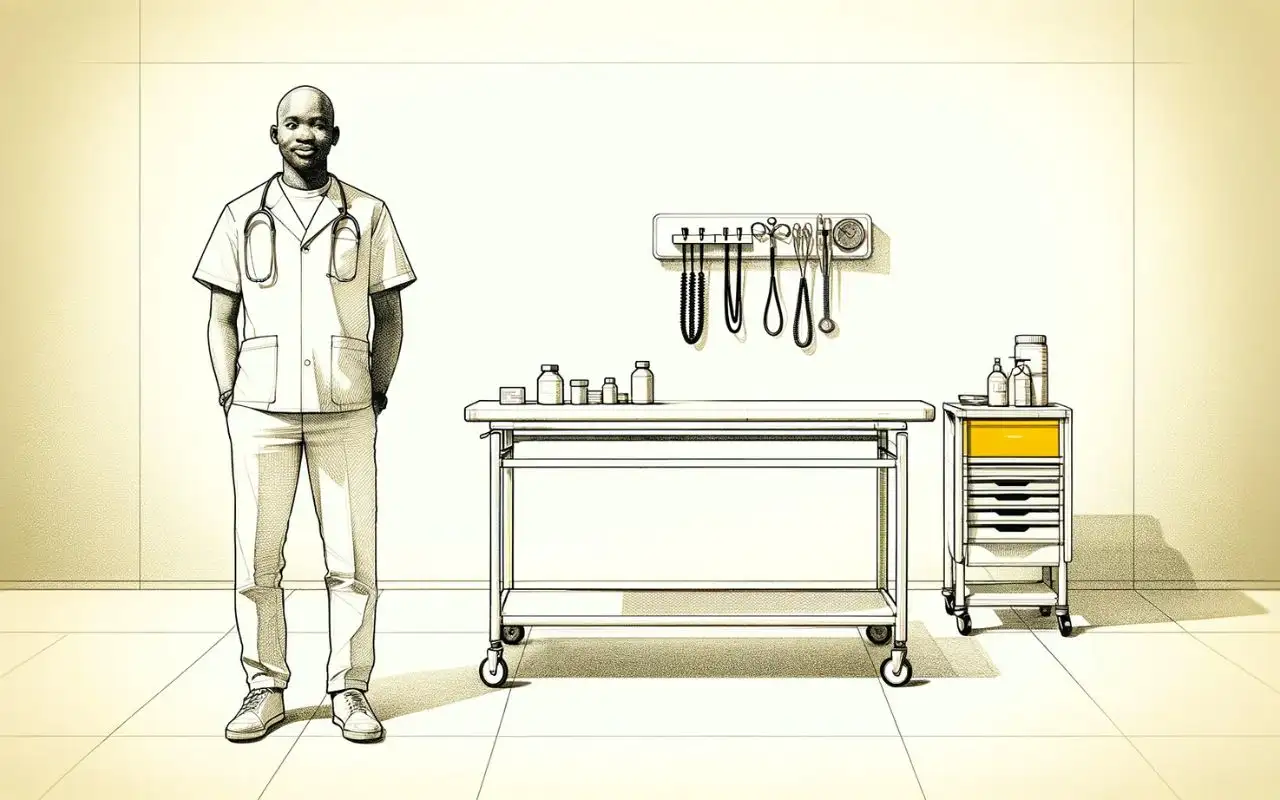A veterinary technician, often called a vet tech, is like a nurse for animals!
They work alongside veterinarians, performing various tasks to care for furry, feathered, and all kinds of patients.
Think taking vitals, drawing blood, assisting in surgery, and administering medications.
They also run lab tests, educate pet owners, and even help with research.
While they can’t diagnose illnesses or prescribe meds, they’re essential for keeping animals healthy and happy.
How Much Does A Veterinary Technician Earn in South Africa
The average salary for a Veterinary Technician in Sout Africa is R57,400 per month.
Most professionals in this field earn between R6,775 and R32,049 monthly.
Entry-level technicians typically receive salaries ranging from R6,775 to R15,077 per month.
After accumulating 5 years of experience, their income typically increases to between R9,242 and R19,750 monthly.
Factors Affecting Veterinary Technician Salary in South Africa
Experience
Salaries typically increase with experience, as senior technicians offer more expertise and efficiency. This can lead to higher productivity and value within the practice.
Qualifications
Holding additional certifications or specialized training in areas like anesthesia, dentistry, or radiology can significantly boost earning potential. These skills allow you to take on more responsibilities and contribute deeper knowledge.
Location
Regional differences, cost of living, and practice type (urban vs. rural) can impact salaries. Metropolitan areas and specialized practices often offer higher compensation due to increased demand and specialization.
Employer
Private clinics can vary in salary structure compared to government or nonprofit settings. Some clinics offer profit-sharing or bonuses, while others have fixed salary scales. Research potential employers for their compensation practices.
Work environment
Emergency clinics or specialist hospitals with demanding schedules and higher stress levels might compensate technicians more compared to traditional clinics with regular hours.
Negotiation
Strong communication and negotiation skills are crucial when discussing salary, especially when applying for a new position or seeking a raise. Research average salaries in your area and highlight your achievements and qualifications.
Professional membership
Affiliation with professional organizations like the South African Veterinary Technician Association (SAVTA) demonstrates commitment and access to continuing education, potentially enhancing your resume and negotiation leverage.
Performance reviews
Consistently exceeding expectations and receiving positive feedback can solidify your value and justify requesting salary adjustments. Track your accomplishments and contributions to support your case.
Language skills
Proficiency in multiple languages, especially Afrikaans, can be an asset in diverse communities, potentially increasing your value and marketability, leading to better compensation opportunities.
Entrepreneurial spirit
Offering specialized services, freelance work, or mobile veterinary services as a side hustle can supplement your income and showcase your initiative, potentially opening doors to higher-paying positions in the future.
Education and Qualifications of A Veterinary Technician in South Africa
National Diploma in Veterinary Technology (NDVetTech)
This two-year diploma, offered by various public universities and private colleges, is the minimum qualification for registration as a Veterinary Technician. It covers animal anatomy, physiology, pharmacology, nursing, anesthesia, and practical skills.
Registration with the South African Veterinary Council (SAVC)
Upon completing the NDVetTech and passing the national board exam, registration with the SAVC is mandatory to practice legally. This ensures adherence to ethical and professional standards.
Continuing Education
Regular participation in workshops, seminars, and online courses is crucial to stay updated on advancements in veterinary medicine and maintain registration. Continuing education demonstrates dedication and enhances knowledge and skills.
Specialization
While the NDVetTech provides a broad foundation, pursuing additional certifications in areas like anesthesia, surgery, radiology, or laboratory medicine deepens expertise and opens doors to specialized roles with potentially higher earning potential.
Internship
Many training institutions require an internship as part of the NDVetTech program. This practical experience under qualified professionals fosters real-world skills and confidence, making graduates more attractive to employers.
Soft Skills
Strong communication, teamwork, critical thinking, and problem-solving are essential for effective interaction with animals, pet owners, and colleagues. Good communication skills help build rapport and trust, while teamwork ensures smooth clinic operations.
Computer Literacy
Proficiency in veterinary software programs for medical records, lab results, and financial management is increasingly expected. Familiarity with digital tools demonstrates adaptability and efficiency in modern veterinary practices.
Professionalism
Maintaining a professional demeanor, ethical conduct, and a commitment to animal welfare are paramount. This includes adhering to dress codes, punctuality, and responsible handling of confidential information.
Passion for Animals
A genuine love for animals and dedication to their well-being is central to a fulfilling career as a veterinary technician. This passion translates into empathy, attentiveness, and a drive to provide the best possible care.
Lifelong Learning
The veterinary field is constantly evolving. A commitment to continual learning through new research, advancements in technology, and evolving animal care practices is essential for remaining relevant and valuable in the profession.

